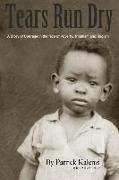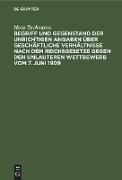Tears Run Dry: A Story of Courage in the face of Poverty, Tribalism and Racism
BücherAngebote / Angebote:
Patrick's story begins with a beating by his nemesis, Muwonge, the bully, whose Nyara tribe despises the Tutsis who are foreign in Uganda. The story turns to that early life, a life where survival was an everyday goal. His status as the son of Rwandese Tutsi refugees constantly affected how he was treated, not only by his government, but by his neighbors as well. His mother, a kind but strong willed woman, his father, illiterate but stubborn, and his 10 siblings all play their parts in determining his upbringing. Once he reaches school age and decides to pursue an education, he faces pressure from his father and siblings to drop out of school. He earns his education by his own means, working to pay school fees and walking long distances to attend classes, his poverty forcing him to sacrifice his need to eat for his need to learn. Through these early years, one man proves vital to supporting Patrick emotionally, if not financially: Baaba, his grandfather. He calls Patrick Rwabagabo, or "courageous boy." With his grandfather, Patrick explores the injustices he faces at school and around the village. The Ugandan natives stereotype Rwandese Tutsi refuges as poor, primitive, dirty, and illiterate. Patrick finds himself involved in and surrounded by severe and sometimes violent altercations. At the peak of a civil war between the Uganda People's Congress and the National Resistance Army, Patrick is kidnapped by a defecting NRA soldier. As tribal tensions in Uganda mount, Patrick faces increasing pressure to join a guerilla army. The propaganda spread by this resistance group is heavy, but the fear of being killed by the ruthless government army is real. Believing that he is acting in the best interest of his tribe and family, Patrick joins the National Resistance Army (NRA) when he is 14 years old. He is injured during training and must return home. Through these experiences, Patrick begins to realize that both physical and mental strength are crucial to his survival. He trains his mind and his body, both to fend off and face the insults and abuse that come along with being born a Tutsi. To attend high school, Patrick must move to Kampala, the capital of Uganda. He lives first with an abusive, alcoholic relative, then an uncle with limited resources but a big heart. His financial struggles continue, at one point, he gets drawn into a potato trading scam, losing most of his savings. Patrick scrapes by for the rest of the term, barely able to pay his fees. After the sudden death of his father, Patrick is faced with the burden of functioning as the head of his family. He uses his scholarship funds to support them, but that is not enough. Deep in debt, Patrick must find a job to continue to feed his mother, siblings, and grandparent. In order to do so, he must leave his aging grandfather under the care of his alcoholic uncle. Though it distresses him to see Baaba suffer in this abusive situation, Patrick knows that he has no choice. The book's last few chapters describe Patrick's determination to get out of poverty and save his family. And that is by moving to America. After selling all of his belongings and the family's last cow, he is just able to leave Uganda. When he arrives in America he is destitute. But after a few years of earning his veterinary licensing, Patrick is soon thriving in his new home. He then makes the memorable travel back to Africa to show his children their roots, see how his success has transformed his family and the tribe.
Folgt in ca. 15 Arbeitstagen




